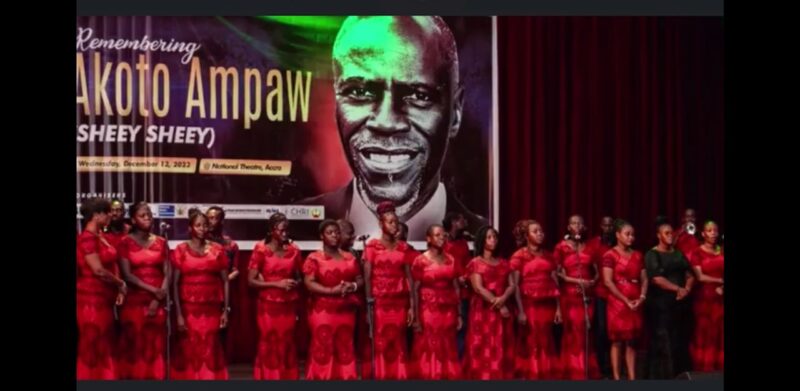
Audio By Carbonatix
Seventy-five to eighty percent (75-80%) of Ghanaians will vote in elections to choose a president and legislators, but only 5% or less will join a demonstration, no matter how noble or urgent the cause for preserving our democracy and improving our collective and individual economic circumstances.
Voting and protests are both fundamental constitutional rights and civic duties of citizens. The Center for Democratic Development (CDD)’s Prof. Henry Kwesi Prempeh is worried about this situation because democracy will work and deliver dividends only if a country has active citizens.
He demonstrates how this is such a dereliction of basic duty as he condemns the African politician’s revulsion for citizens’ protests—a tool for accountability. He also criticizes the constant resort to “heavy-handed policing and a complicit judiciary” to stifle lawful protests. He fears the consequences if citizens continue to cede this civic space to political parties, which can easily mobilize thousands for demonstrations and counter-demonstrations that serve only cheap propaganda.
Good governance comes to citizens who are alive to their civic responsibilities beyond waiting to vote every four years.
I think Prof. Kwesi Prempeh was surprised when his investor-friend sought assurance at the start of the financial crisis that we had a Ghanaian solution to a Sri Lankan-style crisis.
In Sri Lanka, thousands poured into the streets, defied emergency orders, and raised their voices until the president checked out of office. Faced with a similar situation, we looked on and left a handful of elderly citizens to protest in the sun at the premises of the Finance Ministry.

Those we voted for, those we hired to manage the economy, ignored them—until a former Chief Justice joined their protest over the loss of their life savings.
I watched the audience—scholars and friends of Akoto Ampaw—at his first anniversary memorial lecture and nodded in agreement as the CDD boss spoke about how our wasteful and selfish politicians take us all for granted while they loot the public purse.
The economy has suffered historic damage. People need as much as 17 cedis for a single US dollar, and a ball of kenkey, which sold for GH₵1 only a few years ago, is now GH₵5 or more in a country where the daily minimum wage is GH₵18. Many, including the middle class, have been driven into poverty and extreme poverty, yet listen to what takes center stage at the campaign rallies.
I sat there, thinking about how Akoto Ampaw never gave up rallying people to be active citizens despite this typical nonchalance or partisan-induced disinterest. We admit the irreparable damage the NDC-NPP duopoly is doing to our beloved country, yet we will not give smaller parties and independent candidates the chance to attempt some change. I have voted for John Kufuor, Atta Mills, Papa Kwesi Nduom, Zanetor Rawlings, Ursula Owusu-Ekuful, and Bridget Dzobgbenuku.
It is encouraging to watch Alan Kyerematen and his Movement for Change mobilize decent, orderly crowds. His message has been focused on the economy and what he calls the Great Transformational Plan. It is refreshing to see him pick a young man with the clear intention of preparing the youth to take over. Yes, he went shopping for youth. Learning that he approached the iconoclastic, conscientious protestor for an overhaul of this sham of a democratic structure hijacked by the duopoly is a great indication of the kind of reform he seeks for Ghana.
Oliver Barker-Vormawor does not only have an impressive CV; he is far better read, deeply grounded in life-transforming philosophies and politics, and more competent than some of those parading in high public office—and certainly more qualified than some jokers seeking to be president.
May the Anthony Akoto Ampaw Memorial Lectures become more than an annual platform to raise conscious and conscientious citizens who will assert their Chapter 5 rights to public protests in our quest for good governance and prosperity. May Busumuru Kofi Annan’s words ring deep and benefit Ghana. He said, “If there’s enough noise, enough pressure, enough organization, the leaders will follow the people. If the people are apathetic, they don’t vote; they are leaving the field open to the politicians to do what they want.”
That is My Take.
Samson Lardy Anyenini
October 26, 2024
Latest Stories
-
Today’s Front pages: Friday, February 27, 2026
11 minutes -
Premier League: Arsenal v Chelsea preview
20 minutes -
Ghana loses over GHS 6.2bn annually to poor sanitation – ISSER study warns
39 minutes -
Prudential Bank marks February with distribution of Ghanaian chocolate to customers
2 hours -
KMA finally elects Presiding Member after stalemate
2 hours -
Nana B rallies Ayawaso East voters to back NPP’s Baba Ali in March 3 by-election
2 hours -
Be honest with Ghanaians on gold policy – Oppong Nkrumah to gov’t
2 hours -
Lands Minister refutes claims of missing seized excavators, unveils tracking system
2 hours -
Ghana set to launch National AI Strategy to boost local innovation – Sam George
2 hours -
PURC gives ECG 48 hours to fix prepaid metering concerns
2 hours -
Makola No. 2 Market managers justify rent increase amid traders’ protests
2 hours -
Mahama to deliver 2026 State of the Nation Address today
2 hours -
Rapid prepaid electricity depletion not caused by smart meters – Adomako-Mensah rejects ECG’s assertion
2 hours -
GoldBod warns licence holders over failure to file monthly gold transaction reports
3 hours -
E&P controls 45% of Ghana’s mining operations, eyes greater role in economic growth
3 hours

